Peugeot 5008 vs Volvo V60 - Differences and prices compared
Compare performance (325 HP vs 455 HP), boot space and price (37600 £ vs 41600 £ ) at a glance. Find out which car is the better choice for you – Peugeot 5008 or Volvo V60?
Costs and Efficiency:
When it comes to price and running costs, the biggest differences usually appear. This is often where you see which car fits your budget better in the long run.
Peugeot 5008 has a somewhat advantage in terms of price – it starts at 37600 £ , while the Volvo V60 costs 41600 £ . That’s a price difference of around 4054 £.
Fuel consumption also shows a difference: Volvo V60 manages with 2.40 L and is therefore to a small extent more efficient than the Peugeot 5008 with 2.70 L. The difference is about 0.30 L per 100 km.
As for electric range, the Peugeot 5008 performs clearly better – achieving up to 669 km, about 577 km more than the Volvo V60.
Engine and Performance:
Power, torque and acceleration are the classic benchmarks for car enthusiasts – and here, some clear differences start to show.
When it comes to engine power, the Volvo V60 has a distinct edge – offering 455 HP compared to 325 HP. That’s roughly 130 HP more horsepower.
In acceleration from 0 to 100 km/h, the Volvo V60 is significantly quicker – completing the sprint in 4.60 s, while the Peugeot 5008 takes 6.50 s. That’s about 1.90 s faster.
In terms of top speed, the Peugeot 5008 performs slightly better – reaching 220 km/h, while the Volvo V60 tops out at 180 km/h. The difference is around 40 km/h.
There’s also a difference in torque: Volvo V60 pulls clearly perceptible stronger with 709 Nm compared to 511 Nm. That’s about 198 Nm difference.
Space and Everyday Use:
Whether family car or daily driver – which one offers more room, flexibility and comfort?
Seats: Peugeot 5008 offers distinct more seating capacity – 7 vs 5.
In curb weight, Peugeot 5008 is slight lighter – 1700 kg compared to 1734 kg. The difference is around 34 kg.
In terms of boot space, the Volvo V60 offers noticeable more room – 519 L compared to 348 L. That’s a difference of about 171 L.
In maximum load capacity, the Peugeot 5008 performs noticeable better – up to 2232 L, which is about 801 L more than the Volvo V60.
When it comes to payload, Peugeot 5008 distinct takes the win – 640 kg compared to 506 kg. That’s a difference of about 134 kg.
Who wins the race?
The Peugeot 5008 proves to be is largely superior and therefore becomes our DriveDuel Champion!
Peugeot 5008 is the better all-rounder in this comparison.
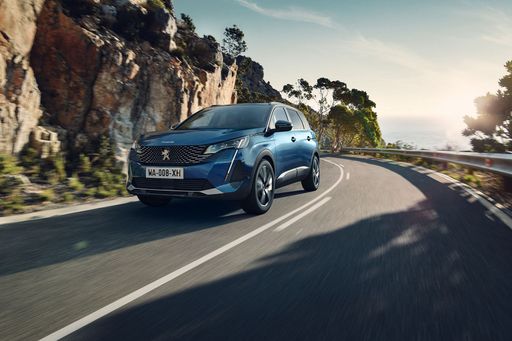
Peugeot 5008
Costs and Consumption
View detailed analysis
Engine and Performance
View detailed analysis
Dimensions and Body
View detailed analysis
Peugeot 5008
The Peugeot 5008 blends Peugeot's sharp design with the space and versatility families actually need, wrapping clever packaging and a premium-feeling cabin in a crisp, SUV-like silhouette. It drives with more poise than you'd expect from a people carrier, serves up practical touches and flexible seating for everyday chaos, and still looks good when parked outside the school gates.
details

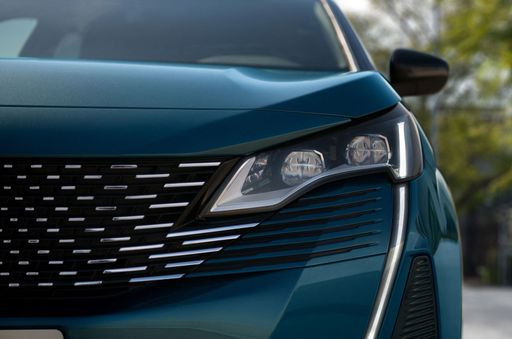

Volvo V60
The Volvo V60 blends elegant Scandinavian design with a practical estate layout, making it a composed and sensible choice for buyers who want style without sacrifice. Inside, a serene cabin, clever safety features and a supple ride turn daily commutes and weekend getaways into effortless, grown-up motoring.
details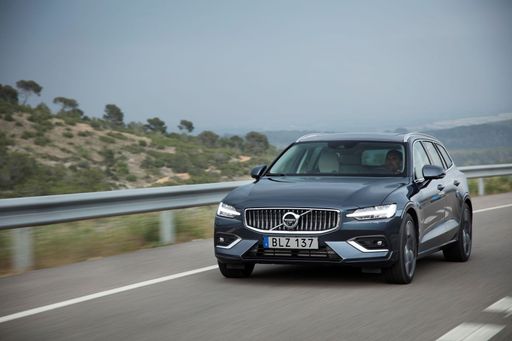
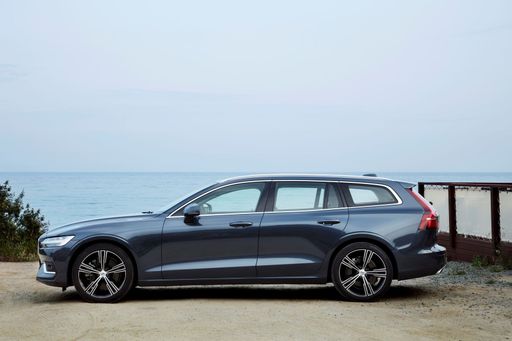
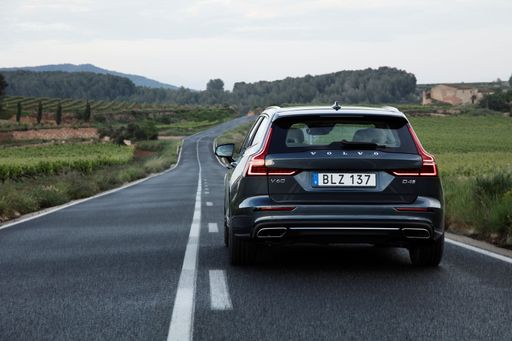
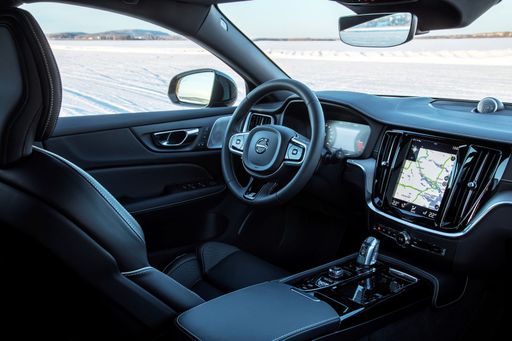
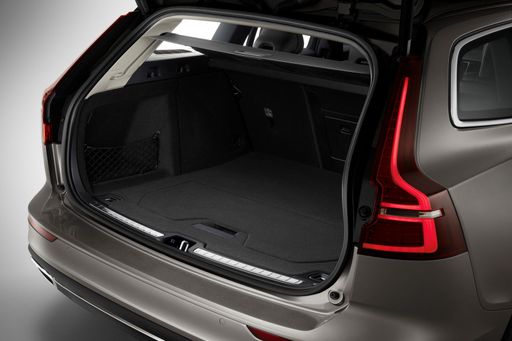
Costs and Consumption |
|
|---|---|
|
Price
37600 - 54200 £
|
Price
41600 - 64200 £
|
|
Consumption L/100km
2.7 - 5.6 L
|
Consumption L/100km
2.4 - 6.2 L
|
|
Consumption kWh/100km
17.8 - 18.6 kWh
|
Consumption kWh/100km
-
|
|
Electric Range
78 - 669 km
|
Electric Range
92 km
|
|
Battery Capacity
0.4 - 96.9 kWh
|
Battery Capacity
14.70 kWh
|
|
co2
0 - 127 g/km
|
co2
54 - 140 g/km
|
|
Fuel tank capacity
55 L
|
Fuel tank capacity
60 L
|
Dimensions and Body |
|
|---|---|
|
Body Type
SUV
|
Body Type
Estate
|
|
Seats
7
|
Seats
5
|
|
Doors
5
|
Doors
5
|
|
Curb weight
1700 - 2344 kg
|
Curb weight
1734 - 2064 kg
|
|
Trunk capacity
294 - 348 L
|
Trunk capacity
519 L
|
|
Length
4791 mm
|
Length
4778 mm
|
|
Width
1895 mm
|
Width
1850 mm
|
|
Height
1694 mm
|
Height
1432 mm
|
|
Max trunk capacity
2178 - 2232 L
|
Max trunk capacity
1431 L
|
|
Payload
596 - 640 kg
|
Payload
466 - 506 kg
|
Engine and Performance |
|
|---|---|
|
Engine Type
Electric, Petrol MHEV, Plugin Hybrid
|
Engine Type
Petrol MHEV, Plugin Hybrid
|
|
Transmission
Automatic
|
Transmission
Automatic
|
|
Transmission Detail
Reduction Gearbox, Dual-Clutch Automatic
|
Transmission Detail
Dual-Clutch Automatic, Automatic Gearbox
|
|
Drive Type
Front-Wheel Drive, All-Wheel Drive
|
Drive Type
Front-Wheel Drive, All-Wheel Drive
|
|
Power HP
145 - 325 HP
|
Power HP
197 - 455 HP
|
|
Acceleration 0-100km/h
6.5 - 10.2 s
|
Acceleration 0-100km/h
4.6 - 7.6 s
|
|
Max Speed
170 - 220 km/h
|
Max Speed
180 km/h
|
|
Torque
230 - 511 Nm
|
Torque
300 - 709 Nm
|
|
Number of Cylinders
3 - 4
|
Number of Cylinders
4
|
|
Power kW
107 - 239 kW
|
Power kW
145 - 335 kW
|
|
Engine capacity
1199 - 1598 cm3
|
Engine capacity
1969 cm3
|
General |
|
|---|---|
|
Model Year
2024 - 2025
|
Model Year
2024 - 2025
|
|
CO2 Efficiency Class
A, D, B
|
CO2 Efficiency Class
E, B
|
|
Brand
Peugeot
|
Brand
Volvo
|
Is the Peugeot 5008 offered with different drivetrains?
Available configurations include Front-Wheel Drive or All-Wheel Drive.




